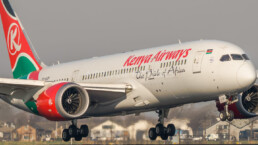In recent years, the African continent has witnessed the highest growth amongst women-owned businesses. While this is seemingly positive, when you scratch a little beneath the surface, you will quickly learn that there are actually fewer African women than men engaged in international trade. Globally, women-owned businesses represented 32% of enterprises, but they do not have a strong presence in value-added productive sectors and they remain largely invisible in global value chains (GVCs).
This does not happen because women are bad entrepreneurs, or because women do not apply themselves in the pursuit of entrepreneurship. Rather, it happens because the odds are systematically stacked against them. The barriers that they disproportionately face include lack of access to property, lack of access to finance, lack of access to social capital and networks, and they are confronted with out-dated cultural norms that limit their ability to fully participate in the economy.
The economic empowerment of women, particularly through international trade, creates opportunities for everyone. Research shows that when women prosper, they tend to reinvest more of their earnings, back into the health, education and nutrition of their families; thereby creating the foundations for the secure and prosperous futures of their families and their wider communities. In economic terms, advancing women’s participation in the economy could add USD 12 trillion to global GDP by 2025.
How can the playing field be levelled for women?
- Fair and inclusive policy
In order for policies to be fair, they need to first recognize and account for the differences between men and women. Once Governments recognize and appreciate the consequences of gender inequality, then they can begin to act. However, it is in the “acting” that many countries find themselves at a stumbling block – how exactly do you go about mainstreaming gender in trade policy? You need to be able to assess how existing policies affect women – but this requires data, particularly gender-disaggregated data. The collection of accurate and timely data is a challenge for African Governments. If countries can see where the gaps are, then they are better able to make informed decisions that will enable them to create more targeted policy interventions.
- Access to finance
In developing economies, fair access to finance should be considered a fundamental essential, similar to primary education or clean water. Expanding access to financial services will mobilise capital for investment and marshal greater household savings. The financial services industry serves as a catalyst for prosperity. Therefore, it is the responsibility of these institutions to enhance economic opportunity for women in a manner that generates wealth and fuels growth. According to research, women begin their businesses with 50% less capital than men. In addition to a lack of access to property, women entrepreneurs find themselves unable to put up the collateral required to secure financing from financial services providers. In cases where women are able to secure financing, they tend to receive smaller loans and pay higher interest rates.
- Bridging the digital gender divide
The World Bank estimates that almost 50% of women not working on farms are entrepreneurs in Sub-Saharan Africa. However, these women are “necessity entrepreneurs” – meaning that they start businesses because they find that they have no other income opportunities. Digital solutions, such as e-commerce, can help level the playing field. E-commerce can be a game-changer for women, by offering them an opportunity to access wider markets without having to maintain traditional brick and mortar stores. Making trade digital can also enable women to cut through the discriminatory behavior they tend to encounter in “face-to-face” transactions. Finally, digital trade offers women more flexibility. Women across Africa face the double work burden, where they spend all day working outdoors and are then expected to come home and put in extra hours for their families. Working online enables women to work at times and in locations which are flexible and therefore compatible with their family lives. However, for this to be possible, women need to be digitally included. According to the ITU, there are 12% fewer women than men using the internet, and over 40% of women are not able to effectively engage with digital tools for personal and professional activities.
It is evident that trade is not gender-neutral. Gender equality is a human right and the AfCFTA has made a commitment to shift the landscape for women. It explicitly cites the importance of gender equality in Article 3(e) of the Agreement. In fact, the importance of using policy to promote gender equality is also emphasized in Agenda 2030 (SDG 5c) and Aspiration 6 of the AU’s Agenda 2063. The AfCFTA signals the ambition of our leaders to achieve the next phase of growth – it is particularly hopeful for women. Research by the World Economic Forum predicts that the AfCFTA will help close the gender gap in 15 years rather than in 102 years. Ultimately, progress in Africa is not possible without “all hands on deck”, and investing in women our secret weapon.
The views expressed in this article are those of the author alone and not the Future Africa Forum.
The views expressed in this article are those of the author and do not necessarily reflect the views of Future Africa Forum. Future Africa Forum is a pan-African policy think-tank and policy advisory consultancy headquartered in Nairobi, Kenya.



